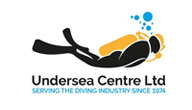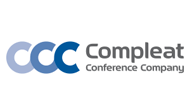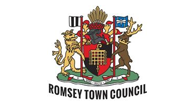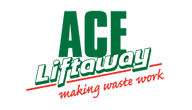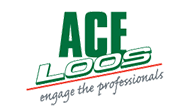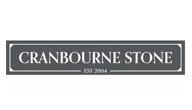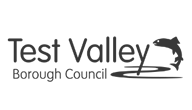Content, Keywords and Freshness – 3 pillars of online success
Posted on October 12, 2016 by Stewart Liesnham
Here’s a statistic that pretty much blew my mind this week. In 2008 the total number of searches on Google (worldwide) was 1.75bn per day. Seven years later in 2015, this number was 7.8bn. To me, it feels like the Internet was fairly well established back in 2008 so this huge growth did surprise me and I work in the Internet, not literally, but you know what I mean. Anyway, the point of my post;
Content, Keywords and Freshness – I kind of made the name of this last one up as it’s not strictly speaking an ‘official’ term for what I am going to write about, but it feels appropriate. These are the three things you need to work on if you want your website to be successful. When I say successful, I don’t mean the one with the most traffic necessarily. I frame success here in the context of what you need to achieve to reach your goals.
For instance, if you are a small business you may simply want to look professional online irrespective of the device being used. You may want to provide your clients with the information they need and make yourself easy to find through search. If you are selling online then your goals may be to drive relevant, quality traffic to your website. You may also want to be an authority on a particular product or sector. To achieve all of these goals, you could do a lot worse than focussing on Content, Keywords and Freshness.
Content
Content is King! You may have heard this phrase before, but not all kings are created equal so let’s get this in context. You may have heard the term ‘authority’ used with regard to websites. Google, who own around 90% of the search market, are constantly updating their search algorithms. This fact alone quite often keeps SEO experts awake at night. Bear in mind however that Google is doing this because their goal is to always serve up the most relevant content to their users. In order for them to do this, they add a weight of authority to websites and content. If you copy someone else’s content, expect to be penalised by Google. This is partly because it’s cheating but mainly because it signals that your content is not original and therefore your authority is demoted. At the other end of the scale, are those that are considered authorities in their field.
A real world example
There are many examples of this, but because I run a lot and like tech stuff I will use this as an example. There is a website called DC Rainmaker who blogs about all things GPS and Sports Tech. He is unquestionably an authority on this and when you search for a GPS watch in Google, you can almost guarantee that his website will be featured on page 1. I bet that DC Rainmaker doesn’t spend a huge amount of time SEO’ing his website. He doesn’t need to because Google places him so high for authority that he gets great listings. This is of course an extreme example but it does make the point.
Essentially, the content on your website needs to be relevant to your audience. It also needs to be original and unique which will help build authority with your users. Your users will value this almost above all else and Google will reward you for it.
Content and eCommerce
Content and eCommerce – I’ve split this out from above because it’s worth elaborating on what this means in this context. To do this it’s worth thinking about how we shop and what information we value about the products we buy. Review sites are always popular and the reason is that they provide more insight into a product than the average website description. As a user, we like to know other people’s experience with a certain product, this is valuable information. If I owned an eCommerce website, I’d have the option of copying and pasting the product description from my suppliers website and using this on my own.
There are two reasons for not doing this. First is the copying of content mentioned above. Google doesn’t like this and will likely demote your page authority for doing it. Simply put, Google will see this as not adding value to their users. This is usually why a manufacturers website will (more) rank highly for a particular product. Secondly, you are not adding anything to your users’ experience. Also, you will likely just be competing on price, which on the Internet, isn’t always a great option. If however, you add some value to the product description, perhaps from your own experience or that of your customers, you will be adding value and uniqueness to your content. Google will like this.
Keywords
Keyword research is where you can find your edge, if ever there was one on the Internet these days. Keywords, or phrases are how people find your website via search engines. Some keywords can be incredibly competitive both for organic or paid search. As such it pays to do some research as you can exploit your niche or specialities. If you are in a competitive market, then put some time into what keywords or phrases would be worth focussing on that will lift you above the more competitive terms in your industry. Alternatively, if you are competing head to head for competitive keywords, that’s fine but it will require additional investment, usually of both time and money.
One thing to bear in mind; never assume that you understand the behaviour of your users. This is where data and number crunching comes in, something best done by a computer/software. This is where you try and find out what search terms, keywords, or key phrases people will use to find your website. Generally speaking, this is where you can see who’s excelling in this area and then work backwards, or use some specific tools or software, to dig into search data and see what works well and what doesn’t. This will give you a bit more insight, which you can then leverage with your own website.
Freshness
This is the word I kind of made up, well not the word but the way in which I’m using it. Freshness is not strictly speaking a typical SEO term but best reflects the point I am trying to get across. Put another way, is your website up to date? Sadly websites don’t gather actual dust which in the real world is a great reminder that an item needs freshening up. Using this as a metaphor, don’t let your website gather dust. First of all, you aren’t giving users a reason to come back to your website. Secondly, Google knows it’s gathering dust and will penalise you with lower rankings.
You may think that you don’t need to update your website but that would be like not dusting your furniture, other people may look down on you. Seriously though, think of your users, do they want to see dust or do they want to see that you are thriving, doing well and valuing their business? Can they find the information that they need? Can they read about what’s happening in your industry, can they even find your website when they are looking for your phone number? With everybody using the Internet for everything, you need to make sure that your website reflects your values and your brand. If you look at your website and cringe, it’s time to take action. If you look at your website and think, is this how I want my customers to perceive my business? Then you know it’s time to take action.
Keep it fresh and your customers, and Google will value this.









